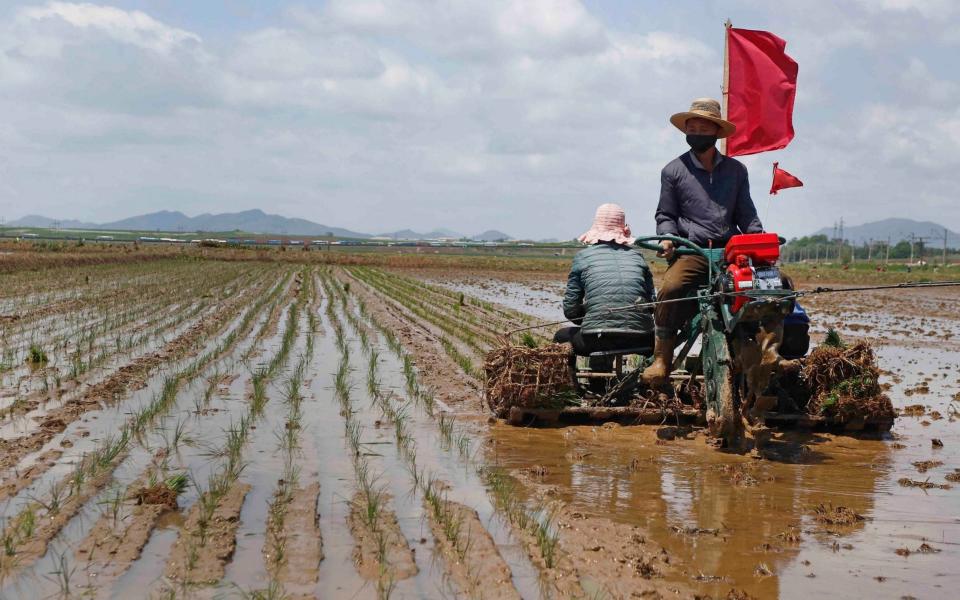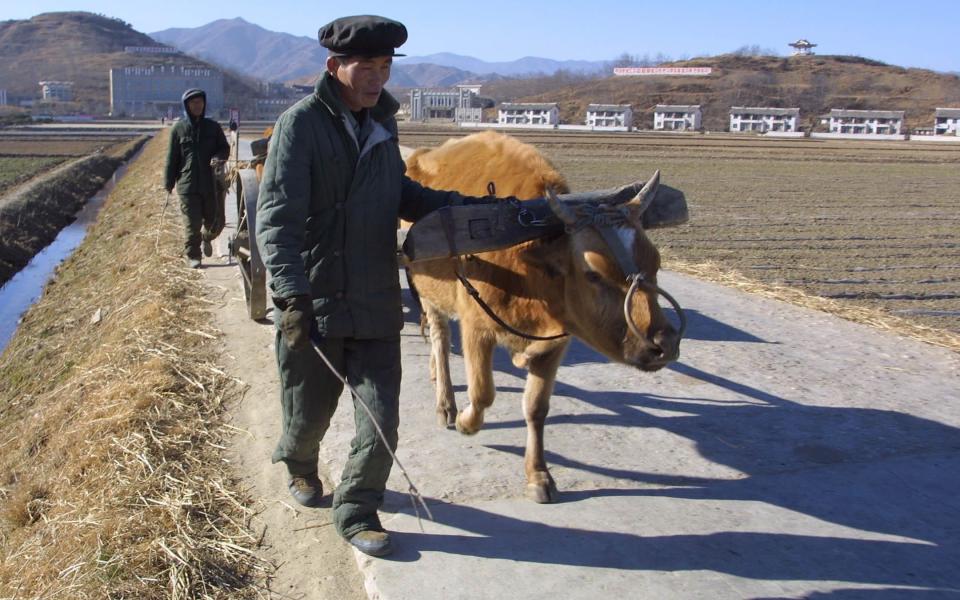Why North Korea is facing a major food shortage that could lead to the death of millions

North Korea is facing a shortfall of more than 1.2 million tonnes of grains to feed a population that is already suffering from malnutrition, according to a new report, raising the spectre of another possible famine in the isolated nation.
"North Korea has been identified as experiencing a food crisis, with many households experiencing undernourishment or minimal levels of nutrition," said the South Korea state-run Korea Development Institute think tank on Thursday.
"People's basic household assets are being sold off to procure food. This is not sustainable and action needs to be taken immediately."
The report estimated that North Korea produced just under 4 million tonnes of grain crops last year, far short of the estimated 5.2 million tonnes needed to sustain its population of nearly 26 million.
North Korea’s main agricultural regions were affected by bad weather once again last year, with a series of powerful typhoons and floods destroying crops.
The government’s decision to close down its border with China as a coronavirus preventive measure has also had an impact, preventing imports of staple foodstuffs, chemical fertilisers for crops, and replacement parts for the country's increasingly ageing farm machinery.

“We are hearing through our contacts that people there are suffering and dying,” said Young-chae Song, a human rights activist with The World-Wide Coalition to Stop Genocide in North Korea.
“The hunger they are experiencing is the direct result of massive economic mismanagement at the same time as they are spending on nuclear weapons and missiles,” he told The Telegraph.
“South Korea has offered to provide food and other aid, but the North has not even replied."
Read more: What a bridge on North Korea's secret border says about China's cold war with the West
The warnings echo similar statements by aid agencies, including the World Food Programme, and reports quoting sources within North Korea saying that entire families have already starved.
WFP has previously estimated that 10.3 million people - more than 40 percent of the population - were already undernourished before the nation’s borders were closed and all aid agencies kicked out last year during the pandemic.
There have also been reports of the armed forces being unable to function at full capacity because so many soldiers have been weakened by hunger, with some even defecting.

Perhaps the most significant indicator of the severity of the problem came from the North Korean leader himself in May, when Kim Jong-un called on the nation to brace itself for another “Arduous March”.
That proclamation will have struck fear into those who remember the four-year famine in the mid-1990s, which became known as "Arduous March" or the "March of Suffering".
As many as 3.5 million people starved to death over four years due to economic mismanagement, a series of droughts, the collapse of the centrally planned system of rationing and the withdrawal of support from the North’s traditional allies, primarily Russia.

Analysts say that to avoid a repeat of that tragedy, the North now has little choice but to appeal to China, its sole major ally, for food assistance, although there are no indications that Pyongyang is ready to reopen its border yet.
"The border with China must be opened and the existing controls must be relaxed to ensure that sufficient food can enter the country," the South Korean report said.
"North Korea must also request large-scale food assistance from the international community, which must be forthcoming, even in these difficult times."


